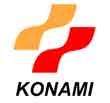Anime News
|
RPT-FEATURE-Young shoppers edge manga into Europe's mainstream Date: 12/21/2009 |
|
* Japan's manga comic books a cult hit in Europe * Cultural, historic roots help manga find new home * Manga buying -- in shops -- a social activity for fans By Reed Stevenson AMSTERDAM, Dec 21 (Reuters) - To understand Europe's growing fascination with the wide-eyed innocents and baroque demons of the Japanese comic books known as manga, it may help to look back at the end of the nineteenth century. "I envy the Japanese the extreme clarity that everything in their work has. It's never dull, and never appears to be done too hastily," the artist Vincent Van Gogh wrote to his brother Theo in 1888. Van Gogh, whose boldly outlined, vivid painting is now instantly recognisable, copied some of the Japanese woodblock prints by Utagawa Hiroshige that are considered precursors to manga, which roughly translates as "freeform pictures". "Their work is as simple as breathing, and they do a figure with a few confident strokes with the same ease as if it was as simple as buttoning your waistcoat," he wrote. With bold black lines and graphic colouring, Hiroshige's prints were delicate -- Van Gogh's 1887 painting of a flowering plum tree, a copy of a Hiroshige print, hangs in Amsterdam's Van Gogh museum. Fast-forward through the industrial and nuclear age, the cultural might of America and ensuing backlash against Mickey Mouse, and there is a logic to the appeal for a generation of Europeans of the hyperbolised cartoon characters. Young adults are a growing market in publishing: Walk into a bookstore in a European city on a Friday or Saturday afternoon and you can find teenagers crowded in front of a wall of the comic books -- a sight nearly nonexistent a few years ago. HARAJUKU-AM-RHEIN On Duesseldorf's Immermannstrasse, an avenue lined with shops catering to the city's Japanese population, is a scene that could come straight from Harajuku, where Tokyo's youth congregate -- except the butcher around the corner sells sausages. German teenagers dressed as Japanese goth rock stars, with multi-coloured hair and heavy eyeliner, mingle with Japanese schoolchildren in a bookstore on the street, giggling as they step into "purikura" photo booths that shoot instant snapshots that people decorate themselves and print as stickers. "They have something special," said Berenike Schmoldt, whose fascination with manga has turned the German teenager into a full-blown Japanophile at 17, during a Friday expedition with her friends. "I spend hours every week reading them." Already fluent in basic Japanese, she is making her fourth visit to Japan this month to soak up the culture, eat her favourite dish of 'yakisoba' fried noodles, and read manga. It's a scene replicated in Amsterdam, Brussels, Paris and Rome: local bookshops have expanded their manga sections and feature hundreds of French, Dutch and Italian titles. Often without the credit cards to shop online, these teenagers visit the stores as part of their social life. "It is something that is much more than a fad," said Paul Gravett, a publisher and expert on comics in Europe. "The term 'manga' is becoming a global word." HUGE POTENTIAL Sales of printed manga books have fallen in Japan in recent years but grown elsewhere, particularly among European young people who are consuming such titles as "NARUTO", "Fruits Basket" and "Death Note" with the same appetite as an earlier generation showed for "The Adventures of Tin Tin" and "The Adventures of Asterix". Often featuring movement that spills across an entire page, manga artists like to push creative boundaries, inventing entirely different worlds or delving deep into human emotions. The comics themselves are read from right to left and printed mainly in black and white on smaller pages than European comics, which are usually in full colour. In Europe manga is an estimated 38 million euros ($56.5 million) market, according to the Japan External Trade Organization's latest data. This is but a fraction of Japan's 480 billion yen ($5.3 billion) manga market, but its potential could be huge: Europe's population of 500 million dwarfs that of Japan's 126 million. Recent trends suggest the manga market in Europe is expanding at a pace of 10-15 percent each year according to data from JETRO and publishers. MANGA M&A Where manga may once have felt distinctly Japanese or weird, it is striding into the mainstream. As marketing executives in Asia explore its potential for product placement, the Japanese Embassy in London held a manga competition last year to recruit manga talent from beyond the country's borders. Earlier this year, two of Japan's top three publishers, Shogakukan Inc and Shueisha Inc., moved to gain greater control over their manga and anime networks in Europe, buying out animation distributor KAZE as well as its VIZ Media subsidiary to tap into demand. Disney-ABC Cable Networks Group in September announced a deal with VIZ to bring a NARUTO series to U.S. TV audiences. "It is 100 percent certain that manga is (going to be) established for a long long time," said Cedric Littardi, president of Paris-based KAZE. "The readership of manga in numbers of people is increasing every single year in every single European country." PSYCHOLOGY In Japan, manga is ubiquitous, read by young and old alike, with genres across the entire spectrum. From fantasy and pornography to archaeology, cooking, pre-school and business strategy, it leaves few topics unexplored. While "Tin Tin" offers complex mystery plots that can still enrapture adults, "Death Note" by writer Tsugumi Ohba and manga artist Takeshi Obata is a fiendishly complex psychological crime thriller that spans an arc of 108 chapters. "The challenge is to get the hottest series around," said Peter Langedijk, buyer of manga titles at Amsterdam's ABC bookstore. Currently at the top of his list is "Vampire Knight" alongside perennial favourites such as "Dragon Ball" and "NARUTO". ANIME OPENED DOORS As Van Gogh shows, manga's influence isn't new in Europe: the modern comics made their first major inroad with Katsuhiro Otomo's dystopian science fiction classic "Akira" 20 years ago. "'Akira' was a turning point," said Paul Herman of French comics publisher Glenat. He, like many manga fans, distinguished between the cult of the manga comic and the influence of manga-style art in anime, the poor-quality TV cartoons that have spawned countless children's TV programmes. "Some bookshops told me they would never sell manga. The perception of manga was clouded by anime on TV, where quality was bad," Herman told Reuters at the Belgian Comic Strip Center in Brussels. But the fact that such anime from Japan as "Doraemon" have been available since the 1970s helped manga find a market. "France, Italy and Spain all have long histories of anime broadcasting," said John Easum of KAZE. "For this reason the current generation of young parents is receptive to Japanese content." (Editing by Sara Ledwith) ($1=89.82 Yen) ($1=.6720 Euro) |
| Source: Reuters |



















